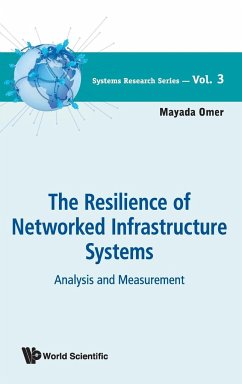This volume elaborates on both the qualitative and quantitative aspects of resilience. Reviewing the literature exploring the concept of resilience in engineering, it discusses resilience in terms of the various definitions used, the methodologies proposed to characterize resilience, and the metrics put forward to quantify the resilience of specific service infrastructure systems. The review also identifies the key factors that contribute to organizational resilience. The concept of resilience is compared to other system properties such as reliability, robustness, flexibility and agility, by taking into consideration what systems are prepared against (types of failure), the causes of failure in systems (uncertainty), and how systems react to overcome failure (level of adaptability). A review is also provided of several resilience-enabling schemes, which improve resilience by reducing vulnerability and increasing adaptive capacity. The book puts forward a new framework, the Networked Infrastructure Resilience Assessment (NIRA) framework, through which the resilience of systems can be measured by assessing the impact of disruptions on key performance measures. By applying the framework to various case studies, the book demonstrates the ability of the proposed framework to assess resilience across a wide variety of networked infrastructure systems. The case studies probe the resilience of the following critical infrastructure systems in the face of specific disruptive events: telecommunication, transportation, maritime transportation and organizational networks. This text is intended for all levels of academia - from undergraduate through to research level as well as professionals and decision-makers involved in the development, analysis and evaluation of infrastructure systems.
Hinweis: Dieser Artikel kann nur an eine deutsche Lieferadresse ausgeliefert werden.
Hinweis: Dieser Artikel kann nur an eine deutsche Lieferadresse ausgeliefert werden.








